RAF pilots are a strange group; we have dreamt of being an RAF pilot since a young age; we often look the same, dress the same, and share the same motivations.
These motivations include a passion for flying, a sense of duty, seeking professional challenges, thriving in high-pressure environments and wanting to make a difference.
You only have to visit an airshow to see evidence of this as we stride around in our flying suits, happy to talk to the public about flying and inspiring the next generation. Unfortunately, the airshow is as cool as it gets.
This article is the opinion of the author, a Royal Air Force pilot, and not necessarily that of the UK Defence Journal. If you would like to submit your own article on this topic or any other, please see our submission guidelines.Â
The RAF faces a growing challenge in retaining skilled pilots as recruitment numbers dip and retention rates fall. One major issue has emerged as particularly troublesome: the diminishing appeal of the job itself.
John Healey, the Defence Secretary, recently revealed that the Armed Forces have been losing 300 more full-time personnel each month than they have been recruiting. For the RAF, this has resulted in Flight Lieutenant (Flt Lt) and Squadron Leader (Sqn Ldr) pilots – the workhorses of a flying Squadron (Sqn) – having a deficit of ~30%. While financial incentives like increased pay and bonuses are often proposed as solutions, these measures fail to address the root of the problem. A fundamental shift in focus is needed to solve the pilot retention problem.
A unique quality the RAF has compared with any commercial airline – the main competitor for talent – is the incomparable lifestyle and job on offer. The role of RAF pilot or aircrew means deploying around the world on behalf of the UK in response to security crises, humanitarian emergencies and other vital missions. No job in the private sector can match such a sense of adventure and purpose. But it has faded over the past 10 to 15 years – eroding the appeal of remaining in the RAF.
Rather than simply throwing relatively low amounts of money at the problem, the service should concentrate on making the job “cool” again, reinstating the prestige, excitement, and purpose that once made it a highly desirable career choice. The RAF is unable to compete with the airline industry’s level of salaries and thus should reimagine the pilot experience to appeal to the intrinsic motivations of today’s military pilot: a sense of purpose, camaraderie, personal growth, and the thrill of serving their King and Country.
The Flawed Focus on Financial Incentives
Overall, downsizing somewhat alleviated pilot shortages; however, today’s RAF cannot afford to shrink further. Nearly two decades of reductions have diminished its ability to produce, integrate, and develop new pilots. The RAF finds itself in a situation where it is haemorrhaging Suitably Qualified and Experienced Personnel (SQEP), and as this number drops further and further, fewer instructors and experienced individuals remain to teach and pass on knowledge to Junior Pilots (JP.)
This leads to JPs not gaining the experience or exposure they require to develop, while the more seasoned and experienced individuals are overworked. This is the exact opposite of how a front-line Sqn should operate. JPs should be flying more and developing, whilst the SQEP fly when needed, leading to JPs gaining the required qualifications. Even if Sqns appear fully staffed on paper, they face a situation where instead of developing and honing skills to fight, they pass the time trying to produce enough qualified pilots. With each SQEP pilot who leaves, the quality of life for the remaining SQEP gets worse as they struggle to maintain the Sqns’ tasks.
In recent years, the RAF has made various attempts to improve retention by offering Financial Retention Incentives (FRIs) targeted at specific cohorts, in exchange for a Return of Service (RoS.) These are limited in their effect, as they are normally very specific in eligibility, and the benefits for the service are short-lived (1-2 years.)
Additional money seems like a logical response to the pressure of rising living costs and the lure of better-paying civilian opportunities. However, these attempts are relatively small when tax is taken into account and when the sums on offer are compared to the salaries in the private sector. Whilst financial incentives can play a role in motivating personnel in the short term, they are mainly only taken up by personnel who had no intention of leaving anyway because of the need to complete their RoS. Overall, extra cash does little to address the long-term dissatisfaction that is pushing pilots to leave, so these bonuses are a tool, but not a solution.
The Armed Forces Continuous Attitude Survey has repeatedly revealed that money alone is rarely the defining factor in whether a service member stays in the military. In fact, research across various sectors shows that while financial rewards are important, they are not the most powerful driver behind job satisfaction or loyalty. Instead, factors like work-life balance, environment, personal development, recognition, and the intrinsic rewards of the job itself tend to have a far more lasting impact. The RAF pilot experience, once renowned for its sense of purpose, excitement, and camaraderie, has become increasingly routine, predictable, and disconnected from the mission that attracted many young recruits in the first place. A focus on financial incentives alone can easily obscure the more important elements that should make the RAF a truly rewarding and fun place to work.
Restoring the “Cool Factor”: Making the Job Exciting Again
To combat the retention crisis, the RAF must reconnect pilots with the core reasons they joined in the first place: the thrill of flying aircraft that you cannot operate in the civilian world; the adventure of serving in a unique and highly skilled role anywhere in the world; being able to tell people you are a ‘Pilot in the RAF’; and the honour of being part of a historic institution that has played a crucial part in national defence since the Battle of Britain in 1940.
One key way to achieve this is through reinvigorating the pilot experience itself. This means creating opportunities for pilots to engage in more dynamic, high-profile, and varied training, tasks and missions that tap into their sense of purpose and desire for excitement. Current flying training is monotonous, with much of it moved into a simulator, while barriers have been placed on the actual physical flying to make it less risky because of health & safety concerns. This has the effect of making many training tasks or exercises rather unrealistic or overcautious and not representative of the real world at all. Whatever happened to technical Tuesdays where the Sqn would get together, Wednesday War or tactical Thursdays? All of which would empower pilots and genuinely test the potential of these highly motivated and skilled individuals.
The RAF also needs to start saying thank you as well as rewarding and decorating pilots once more. You only have to search Station Awards, New Year’s Honours and Kings Birthday Honours lists to notice the distinct lack of pilots. Now, this could be due to pilots being rather humble, the standard of write-ups, or the fact Sqn’s are too busy to write up submissions. However, senior leaders and the station hierarchy should ask questions and push for pilot submissions and inclusions. Pilots can be out of the country, on deployment and exercises, for a total of four-to-six months every single year, whilst other trades may do a four-to-six-month deployment every three to four years, otherwise remaining in the UK. Rewarding and publicly saying thank you will emphasise the role of pilots in these meaningful and high-impact tasks. Many other trades do not realise that most pilots do not have weekends, maybe only have one day off a week, and can be sat on very high readiness for hours if not days. The RAF can show its gratitude to pilots and remind personnel of the critical importance of their professionalism, work ethic and the value of their skills.
In addition, the RAF should invest in developing a more dynamic and supportive work environment that fosters a sense of belonging, camaraderie, and personal growth. Pilot members are not just pilots, but they are part of a crew and a Sqn, and the team dynamic is crucial for both mission success and personal satisfaction. This is very different from the airlines where pilots can quite regularly pitch up for a flight, not knowing anyone on the crew and having nothing in common with them.
The RAF must take advantage of this and cultivate a workplace that values team building, mentorship, and personal development. Prioritise team and Sqn development over long, boring, pointless tasks like submitting endless business cases, audits and collecting signatures around station on pointless paperwork.
It is no lie that the majority of RAF have ‘sports Wednesdays,’ where departments will enjoy a whole afternoon of playing sports or training whilst pilots continue to grind it out on the Sqn. Also, ask any pilot, ‘When was the last time they got away on educational visits, historical visits, sports or adventurous training?’ When not flying, the RAF needs to get pilots out from behind their desks, conducting endless online training, secondary duties, submitting claims, and catching up with emails and instead get them concentrating on becoming the best RAF Officer, brand representative and aviator they can be. An environment that feels more engaging and supportive, rather than one defined by a rigid impersonal lifestyle and hierarchy.
Make Promotion ‘Cool’ Again
Squadron Leader (Sqn Ldr) is the first rank at which flying starts to take a backward step. Staff jobs and desk work starts to become much of your daily routine whilst managing your Flight Lieutenants (Flt Lts) to continue to deliver output. If current trends continue Sqn Ldr posts could be anywhere from 40-50% gapped in two-to-three years’ time, if current trends continue.
There are several reasons why the majority of pilots are reluctant to accept a promotion to Sqn Ldr, asking themselves what’s in it for them. Increased mundane responsibilities and handling administrative tasks, more time commitments and degradation of work/life balance, career trajectory concerns due to individuals wanting to focus on a specialist path like weapons or flight instructor whilst taking promotion could steer their career in a direction they don’t want, are all the worries individuals face with the prospect of promotion.
The added responsibility and roles can be a significant shift from the role of a Flt Lt who gets to fly a multimillion-pound aircraft – the job they have dreamt of since a child.
These questions are not the only problem. Another is the promotion system itself, which has seen highly qualified pilots, flying/weapon instructors and test pilots repeatedly overlooked for promotion. Each year pilots are not evaluated on their core duties and performance, but instead assessed on their duties outside of flying and around Station. This approach leads to promotion boards promoting personnel who are mostly composed of non-current and non-war fighter pilots, who are unable to fully grasp the degree and significance of aviation expertise.
The RAF needs to get back to promoting pilots based on their flying skills and leadership on the Sqn and in the air. Promoting these individuals will result in having leaders whose motivation and drive are based on military flying, air power and producing effects-based operations, along with inspiring JPs to follow in their footsteps and hopefully retain them.
The promotion system inside the RAF right now can be compared to promoting medical staff on their ability to organise a village fete rather than their clinical expertise.
Leveraging Technology and Innovation
Another way to make the job “cool” again is to fully embrace the role of cutting-edge technology in day-to-day life and operations. The modern RAF is home to some of the most advanced aircraft and hardware, yet the experience of working with more basic lines of technologies like IT/apps/laptops/HR/tablets etc, is useless, one-dimensional or totally unfit for purpose. To rekindle the thrill of tech, the RAF needs to get with the times, cut bureaucracy and contractor ties and invest in improved usability of basic tech to make the job of being a pilot cool and smooth.
The current generation of pilot members are likely to be driven by an interest in science, technology, engineering, and mathematics, so by offering opportunities to engage with cutting-edge innovations, artificial intelligence, and planning tools – the RAF can retain pilots who are excited by the prospect of being at the forefront of technological advances.
The Role of Prestige and National Pride
The RAF’s historical prestige, its role in protecting national security, and its place in the cultural imagination, all contribute to its appeal. Reinstating the sense of national pride that comes with being part of an iconic institution can be a powerful tool in encouraging pilot retention. To this end, the RAF and Directorate of Defence Communications (DDC) need to improve their social media presence with zest to highlight the service’s rich heritage, its international partnerships, and the unique role it plays in global security. High-profile public relations campaigns that emphasise the prestige of serving in the RAF—especially for pilot members—can help to restore the allure of the service.
Moreover, pilot personnel should feel that their contributions are recognised not just within the military but by the broader society. Programmes that celebrate the achievements of RAF pilots, both on the battlefield and in peacetime, can strengthen the bond between the RAF and the public, fostering a sense of pride and identity that extends beyond the job itself.
Conclusion
The underlying issue is a lack of value – real or perceived – which has pushed pilots away, right into the arms of the civilian airlines. This cannot be solved by financial incentives alone, but instead policies and culture need to be targeted. Pilots have always joked about being ‘at the sharp end’ – being engaged in the most challenging or difficult activities – whilst the rest of the RAF were ‘blunt,’ but in recent years the whole force has become very blunt and boring. The RAF is a war fighting organisation that delivers air power to deliver an effect, so it needs to embrace the needs and requirements of its highly skilled and professional personnel, and this goes for all adept trades.
Focusing on relatively small pay increases and bonuses, which fail to fully comprehend the conditions that eroded pilot retention in the first place has done nothing to improve retention so far. The RAF should invest in making the job cool again and reinvigorating the individual experience. This includes emphasising the thrill of flying, the excitement of cutting-edge technology, and the sense of purpose derived from meaningful, high-impact missions. By fostering a work environment that values camaraderie, personal development, and innovation, the RAF can tap into the intrinsic motivations of its personnel, ensuring that they remain in post not just because of financial rewards but because they are excited, fulfilled and proud to serve.



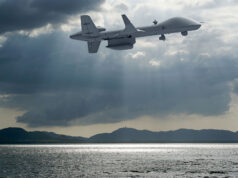
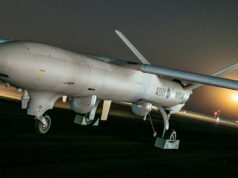
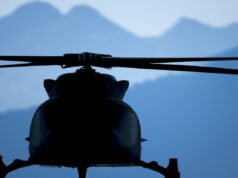
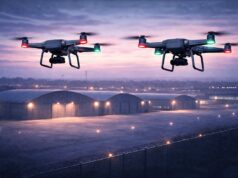

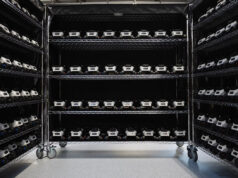
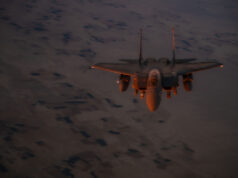
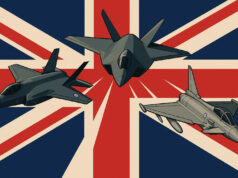
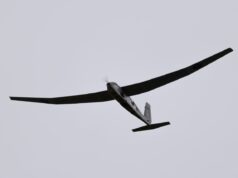
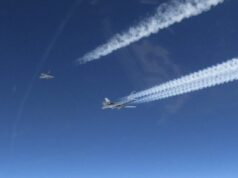

When I was a lad (pre-mrca, aka tornado to be) I managed to get as far as Biggin Hill, to have my colour blindness confirmed. Competition even for ground commissions was ferocious, so I had to content myself with 6 years professional training . But for 20 odd years, if someone had said you can be a fighter pilot I’d have packed up and joined immediately, knowing it to be impossible. How times have changed! I niw wouldn’t even fit the recruitment profile.
An interesting piece with some great nuggets in it. It is why the RAF should be led by a pilot and not an engineer. The latter are certainly not cool if essential to AirPower delivery.
You know planes need engineers to fly right, and pilots aren’t the only trade going through a workforce challenge at the moment?
The same could be said for almost any profession within the RAF. The promotion system is not fit for purpose with a person’s primary ability taken for granted and silly secondary duties outrageously heavily weighted in the eyes of promotion boards. So much needs to change before serving people think it’s “cool” again.
If it takes 5 million to train a fast jet pilot, it is more economic to pay them more to retain than train new people!
And given how few fast jet pilots there are the costs wouldn’t be massive either.
Yea, I don’t think they’ve done the maths on this one…
Paying an extra £50k per year for 20 years costs £1m, but might reduce training costs by 1/3, or almost £2m. Plus your pilots will be more experienced on average. The trade off is that regular reserve pilots would be fewer, and the training pipeline would be more lean and less scalable.
And how long to train?
How long does it take to go from 1st training flight to Operational Squadron?
While I agree with some of your points about ‘not fit for purpose’, i.e. promotion system, secondary duties, and perceived lack of value the hubris and ignorance around ‘sports Wednesdays’ and what pilots ‘deserve’ versus the rest of the RAF is next level. In case you’ve not been around and I suspect you haven’t, there are other members of the RAF (the majority) who also deploy a lot, are on call (well over and above the working time directive), don’t promote when they should and aren’t honoured (when they should be). I’m assuming the OP is a pilot, so if and when you reach the dizzy heights of Air rank – no pun – you may want to look around outside the Sqn tea bar and understand what the rest of the RAF also have to endure. It will ‘broaden’ you, as they say.
I’d also add most of the RAF aren’t on flying pay either, or have the option of an aviators pay spine. And to Mr Wheelers suggestion about who the RAF being led by a pilot… ‘Wigston’. enough said. The RAF should be led by the best regardless of profession or any other neo-category.
War must be prepared in minds first. Then you can have pilotes. I doubt that a society assessing if it is fine to have men trans in women toilettes is preparing correctly younger individuals for war, adventure and fighter pilote rôles. I may be wrong, but at some point it could be wise to teach virtues to kids, including martial virtues.
I’m sorry but has anyone visited https://recruitment.raf.mod.uk/career-and-benefits
The first photo is someone prepping a plate of food! I’m sure there is a need for catering staff but also pretty sure a future pilot recruit would reach that and immediately look elsewhere!
Step one, slash the time it takes between someone volunteering and giving them the keys to a spanking new fighter plane.
Russia’s got their time down to a 30-minute instructional video!
I think there’s some repetitive rants and some good reasoning in this article. But I think it misses some fundamental points.
Give me a flightlie of serviceable airframes (including spares for the day of tasking), a gaggle of sufficiently resourced engineers, suppliers and admin staff, some great overseas exercises, time for adventurous training and decent accomodation I would have stayed forever.
Threaten me with a ground tour (see the offer for people to return to the RAF as pilots on SERVE), an out of specialisation deployment, a crap cold house (again) and make me do more simulator time than real aircraft time and you can go jump.
I do a job now where I can pretty much fly every day I go to work and on every flight I learn something or develop. That’s where the RAF needs to go. There will be tedious admin; that’s the same in any job. No IT has worked in any job ever, so stop complaining. Don’t focus on getting rid of the negatives of the job. Make the plentiful challenging flying blot out the tedious admin because you know you’ll be back in the cockpit soon.
Doesn’t seem to have changed much since 2TAF days. Organising the Ladies’ Loos at the Station Sports Day was a good career move’.
Unfortunately, the presence of excess health and safety, means the complete absence of fun – the two very rarely overlap in my view.
Not that I’m advocating a dangerous work environment, but I saw more high speed passes in 2 weeks in Poland, than I have in almost 10 years UK service.
Thoughtful piece, naturally pilot biased. Pretty much agree with the sentiment but would echo others comments that there’s a big SQEP team behind each sortie lauch and each element of that team is facing the same challenges. I don’t have an answer – however in my current military aviation related career I see a lot of really excellent young people with the passion but for varied reasons have chosen a civil route rather than uniformed. The article title – make it cool again, is definitly applicable across the piste; why are we not attracting those that we should?
Bring back the days of taceval, give everyone a focus, make it exciting, make it fun again – as an ex-sootie I bl**dy loved those days. But I wouldn’t be in there now for all the tea in China. Boring days of filling in forms for some faceless government bloke who’s had his eyes surgically exchanged for pound coins. No wonder they can’t keep staff these days.
Perhaps if the RAF stopped referring to a certain demographic as “useless white men”…that might help. Also you need the trainer jets, the trainers and the money to buy the planes and to keep them flying. None of this exists in the amounts required plus DEI which is now rampant in the services is enough to make anyone with a cluster of brain cells run a mile from such a toxic environment.
Got to say it, why join a force that is consistently shrinking…….what do we have now, 130 combat jets ? Invest more and you will get the retention. Nobody wants to join or stay in an organisation that is struggling. 4% GDP would make a real positive difference.
Same with the RN – it’s amazing the MoD doesn’t grasp this. Cuts, cuts, cuts to ships drive leavers
Maybe when the RAF concentrates on recruiting the best rather than diversity, it’s recruit woes will reduce:
“White men seeking to join the Royal Air Force were described as “useless white male pilots” in leaked emails that expose the pressure placed on recruitment officers to improve diversity.
A number of selection boards to place new recruits on courses – a crucial part of maintaining the fighting strength of the RAF – were also cancelled if they did not include women or ethnic minorities, according to the messages, which have been seen by Sky News.
It can also be revealed the air force is paying £5,000 each to 31 white men – a total of £155,000 – who it found had been unfairly disadvantaged by a recruitment policy that – under the leadership of Air Chief Marshal Sir Mike Wigston, the head of the RAF – sought to boost female and ethnic minority ratios in the air force, according to a defence source.
A further review indicated hundreds more had been disadvantaged, the source said.
The RAF confirmed that 31 individuals had received payments but did not confirm the amount.
The revelations appear to contrast with repeated assurances by Air Chief Marshal Wigston that well-intentioned efforts to improve diversity did not discriminate against white men, two informed defence sources said.”
For some of the comments made, there are people who meed to be dishonourably discharged. Including leadership.
Any prejudice recruitment is unacceptable, but with the armed forces I only want the very best we can get. Combat and war are not jokes for the alter of DEI.
It would interesting to how many cadets in particular RAF Ait Cadetshave joined the RAF in the last 10 years, how many have each year over the last years, I would be extremly ssurprised if the numbers have not dropped. Simply RAF Cadets no longer have the face 2 face experience in the RAF.
Reverse racial discrimination is a massive problem for the UK now. Horrific situation that needs to end.
The RAF actively discriminated against perfectly capable white males who were applying. Good job there in creating your own problems. We’re led by morons everywhere. No wonder everything is in such a mess
I didn’t realise there was any such thing as a “perfectly capable white male”…
Then it would seem English is your second language because “perfectly capable” is a normal everyday phrase.
Sorry I was being facetious ..so just ro clarify: it was not a dig at the grammar or the phrase itself …it was a dig at all those that believe no white male can actually be capable ..at anything.
100%. They should be talking to their new immigrant friends, that’s who they care about not white males. We need to protect our indigenous white males from war. What would they be fighting for anyway – Charles? The “country?” What country?? Go and fight and die while the immigrants who do not love the country or our culture relax and stay safe?? No. Not now. Not after how our British born people are being treated.
I think the length of time it takes to become a fighter pilot puts some off,going in as an early 20s bloke and not qualifying till you’re nearly 30 is a factor in the article.
The pathetic number of fighter jets we have is also an element of some people thinking of applying saying what are the odds of me being selected, passing all the courses qualifying. Huge odds.
The Royal Air Force has a culture problem. The fish rots from.the head.
The solution is to delegate authority back down to Squadron level, encourage leadership, esprit at that level.
1960s RAF Wattisham had ‘Treble One’ and 56 Squadron (two Victoria Crosses, McCudden, Ball) in healthy competition; bold, striking Squadron markings on each Lightning Mk3. In addition, Super Sabres from Lakenheath used to ‘hoover’ down the runway from time to time just to be annoying.
56 Squadron went to RAF Akrotiri and single handedly forced a Turkish invasion fleet to return to port by aggressively intercepting each and every Turkish Air Force recce sortie.
This is not complicated. Leadership is required from the Chief of the Air Staff to appoint and back leaders at Squadron level and then get out of the way.
I have zero sympathy for the forces with recruitment troubles. I have a letter at home from some MOD staffer telling me I am “permanently unfit to serve” because my right eye is 0.25 dioptres too short-sighted for their arbitrary limit. With glasses or contacts I have 20/20 vision. Without them, I am practically just as blind as someone who happens to be on the right side of their line. The recruiters can frankly go fuck themselves.
Agreed. Let them recruit their new immigrants friends, that’s who they care about.
Point of Order
The description of “pointless paperwork” shows profound and unprofessional ignorance of the essential processes operated at Squadron level and above to deliver the resources required to enable Pilots to deliver Air Effects.
Aside from the obvious logistics and supply chain required to support the Squadron personnel, the complexity and diligence required to provide serviceable aircraft and weapons means lots of processes and integration between specialist trades and suppliers.
Whilst the tools used to enable these processes may not be convenient as consumer applications the key to delivering their intended service is good process education so that all actors understand and value their contributions. This helps to avoid the mistaken perception of “pointless”, ‘just a cog in the machine’, and reveal the valuable contribution being made. Something to be proud of, actually.
That processes education is likely associated with specific aircraft and weapons but should be encouraged and supported within education and readiness responsible leaders. Thus delivering the competence and teamwork that makes RAF really Cool!
When I left the RAF I thought I’d heard the last of aircrew whinging. Guess not.
Retention, having somewhere decent to live, having interesting and “cool” jobs, training, decent kit, and work / life balance are not solely aircrew issues. The whole force needs that, and I hope that it can be achieved.
Could you précis that please?
Precis: ‘Logistics wins wars.’
In fact, deterrence wins wars without having to fight them.
Deterrence requires a big stick with an extremely sharp point.
Pilots, teeth arms, are that tip. It is the task of high command to support to their utmost the youngsters actually in the firing line.
‘Serve to lead’
As someone who spent 37 happy years in the RAF, this was a sad read. There is a lot to commend in the article but it’s a bit blinkered in places.
Sometimes ground branches are at the sharp end too. Take the Balkans crisis as an example. I was on the ground in Sarajevo in the bad days and there were no aircraft (or aircrew) based there. C130s came in to drop or collect people and stuff on engines running offloads, the helicopters were based in Split, and fast jets flew from and returned to bases in UK and Germany. Working on the ground in Iraq was similar.
Promoting people on flying ability alone might be good up to sqn ldr level but, to be a good OC of a flying sqn, I suggest a good knowledge of what the engineers and loggies do behind the scenes (often working way beyond a normal working day to support the flying task) would be valuable. The top ranks need even broader experience to politic successfully, so the current CAS is (IMHO) a good fit; others have commented on his predecessor.
On sport, a Typhoon pilot was probably the RAF’s best skier ever and, albeit with a little help, managed to get time off to train and compete.
This all said, I agree with most of what the author has written and I hope the RAF hierarchy and civil servants take note. I personally would have had not problem with the active flying aircrew being paid much more as a spend-to-save measure to reduce training costs. But, once they went onto ground tours and lost their combat ready status, it would be hard to justify paying so much extra.
A good and thought-provoking article overall.
Having served it’s the constant cuts to Squadrons, aircraft and bases. Being referred to as useless white males in the interests of diversity doesn’t help. Reversal of cuts and binning DEI will help
100% so right the Armed Forces are now very Pink and Fluffy as the ‘leaders’ make it. Once the UK Armed Forces were looked up to by all comers, today they are simply a laughing stock and an embaressment to those of us that once served and the State as a whole. About time the whole lot had a major shack up and kick out the idiot plonkers who have destroyed our once Great Military Services.
The Problem is affecting all the Services, just what do we get for our taxes these days? Simply said not a lot.
Keep the T1’s for RAFR (like US ANG), when i was young i had powered glider license but didnt get A levels let alone deg so i couldn’t be a ‘pilot’ only Uni people can be Orificers
White Men should not fall for this nonsense. They’ve been demonized by the government and leftist people and politicians country wide. Let the government recruit from their new immigrant friends and leave white males alone to prosper and build their families. The country doesn’t love you or care about you, and they told you this in prior recruitment efforts…they told you how they feel about you, believe them.
Unless a RAF pilot’s wife and family get as good a life (including wife employment options) then an airline pilot there is liitle additional pay often taxed at 60% (or over) if he have children will do for retention. Likewise for most military officers.
Maybe now is the time for the MOD to take a look at what qualities are needed by our future pilots and why the RAF (and RN) cannot operate with Warrant Officer and SNCO pilots. The AAC operate complicated, high tech helicopters using WO and SNCO pilots and aircrew and are very successful – they still have officer aircrew who follow the normal officer career plan but WO/SNCO are there first and foremost to fly. Pay does not need to be linked to rank – flying pay can be linked to time of service. Get the pilots and aircrew sorted at the right level and you are more than halfway to sorting job satisfaction and retention
The obvious thing to do is let the FAA take over the RAF. Everybody wants to Fly Navy.